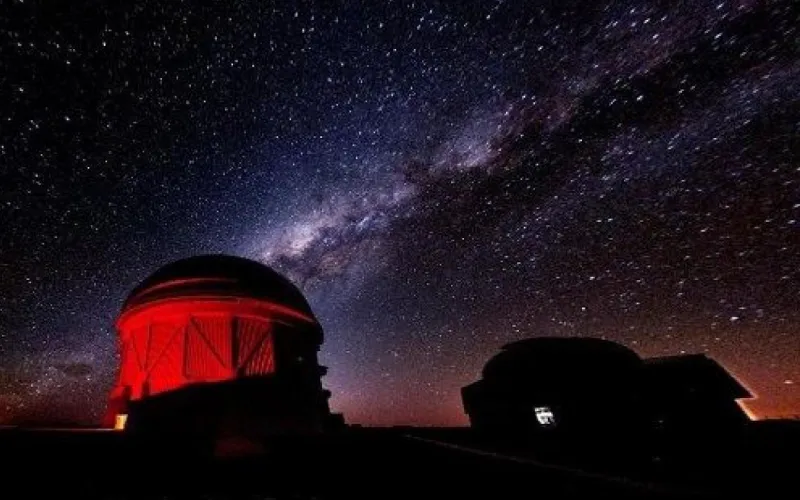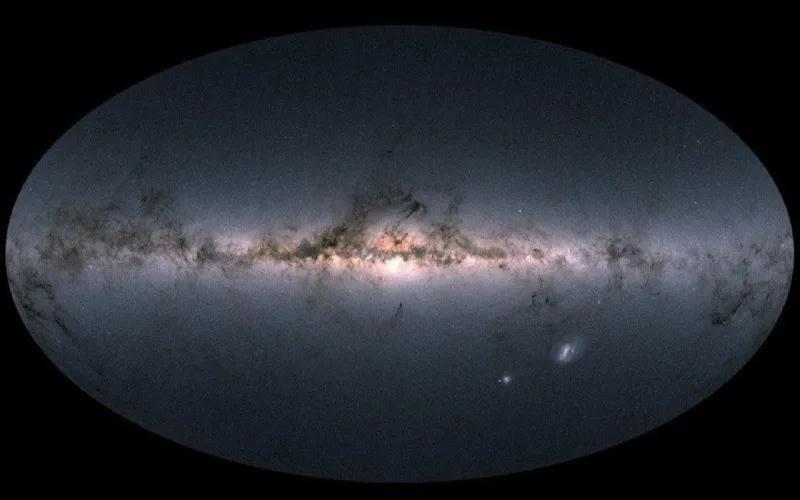
Course Title: iMaven Astrophysics iMAP101
Course Duration: 8 Weeks
Course Description: iMAP101 is the first course in the iMaven Astrophysics series and is designed for students who have completed the Foundation Course FAP100 or the Elementary Course EAP100. This course delves deeper into the study of astrophysics, exploring advanced concepts and preparing students for more specialized topics in subsequent courses.
Course Objectives:
Galactic Astronomy: Gain an in-depth understanding of our Milky Way galaxy, its structure, dynamics, and stellar populations.
Stellar Evolution and Nucleosynthesis: Explore the life cycles of stars, the processes that govern their evolution, and the creation of elements in stars.
The Interstellar Medium: Learn about the various components of the interstellar medium, such as gas, dust, and magnetic fields, and their role in the galaxy's evolution.
Extragalactic Astronomy: Study galaxies beyond the Milky Way, including their classification, properties, and the structure of the universe on larger scales.
High-Energy Astrophysics: Delve into high-energy phenomena, including black holes, neutron stars, and other extreme celestial objects.
Course Curriculum:
Week 1: Galactic Astronomy
- The Structure of the Milky Way
- Stellar Populations in the Galaxy
- Galactic Dynamics
Week 2: Stellar Evolution and Nucleosynthesis
- Stellar Formation and Protostars
- The Life Stages of Stars
- Stellar Nucleosynthesis and Element Production
Week 3: The Interstellar Medium
- Types of Interstellar Gas
- Interstellar Dust and Grains
- Magnetic Fields in the Interstellar Medium
Week 4: Extragalactic Astronomy
- Types of Galaxies
- Galaxy Clusters and Superclusters
- Large-Scale Structure of the Universe
Week 5: High-Energy Astrophysics
- Black Holes and their Properties
- Neutron Stars and Pulsars
- Active Galactic Nuclei and Quasars
Assessment and Grading:
- Weekly quizzes, assignments, and participation in group discussions.
- Mid-term assessment.
- Final examination.
Prerequisites: Completion of the Foundation Course FAP100 or the Elementary Course EAP100, or equivalent knowledge of introductory astrophysics.
Completion Requirements: Students must complete all assignments, quizzes, and pass the mid-term and final examinations to receive a certificate of completion.
Recommended Resources:
- Advanced textbooks and research papers.
- Access to astronomical software and databases.
- Opportunities for observational or computational projects.
- Teacher: iMaven Astronomy

Course Title: Foundation Course in Astrophysics (FAP100)
Course Duration: 5 Weeks
Course Description: FAP100 is a comprehensive introductory course in astrophysics designed for individuals with little to no prior knowledge of the subject. This course will lay the groundwork for a deeper understanding of astrophysics and prepare students for more advanced courses in the field.
Course Objectives:
Introduction to Astrophysics: Understand the fundamental concepts and principles of astrophysics, its significance in the scientific community, and its role in our understanding of the universe.
The Night Sky: Learn how to observe and identify celestial objects, stars, planets, constellations, and other celestial phenomena.
Stellar Astronomy: Explore the life cycles of stars, their classification, and how they contribute to the dynamics of the universe.
Galaxies and Cosmology: Gain insights into the structure and formation of galaxies and an introduction to the principles of cosmology.
Astronomical Tools and Observations: Learn about the telescopes, instruments, and methods used by astronomers to study the universe.
Course Curriculum:
Week 1: Introduction to Astrophysics
- What is Astrophysics?
- Historical Overview of Astronomy
- Significance of Astrophysics
Week 2: The Night Sky
- Celestial Coordinates and Observation
- Identifying Stars and Constellations
- Observing Planets and the Moon
Week 3: Stellar Astronomy
- The Life Cycle of Stars
- Stellar Classification
- Stellar Evolution
Week 4: Galaxies and Cosmology
- Types of Galaxies
- Galaxy Formation and Evolution
- An Overview of Cosmology
Week 5: Astronomical Tools and Observations
- Telescopes and Observatories
- Data Collection and Analysis
- Practical Observations
Assessment and Grading:
- Weekly quizzes and assignments to assess understanding.
- Final examination at the end of the course.
- Participation in discussion forums and group activities.
Prerequisites: None, this course is open to absolute beginners.
Completion Requirements: Students must complete all assignments, quizzes, and pass the final examination to receive a certificate of completion.
Recommended Resources:
- Textbooks and online resources
- Access to astronomical software and databases
- Observing tools (binoculars or a small telescope
- Teacher: iMaven Astronomy

Course Title: Elementary Course in Astrophysics (EAP100)
Course Duration: 5 Weeks
Course Description: EAP100 is an intermediate-level course in astrophysics designed for individuals who have either completed the Foundation Course FAP100 or have a basic understanding of astrophysics. This course builds upon the fundamentals learned in the foundation course and provides a more in-depth exploration of key topics in astrophysics.
Course Objectives:
Celestial Mechanics: Understand the principles of celestial mechanics, including orbits, gravitational forces, and motion of celestial bodies.
Planetary Science: Explore the characteristics, geology, and atmospheres of planets in our solar system and beyond.
Exoplanets and Planetary Systems: Learn about the discovery and study of exoplanets and their significance in understanding the potential for extraterrestrial life.
Astronomical Spectroscopy: Gain insights into the use of spectroscopy as a tool for studying celestial objects and their compositions.
Astronomical Data Analysis: Learn how to analyze astronomical data and draw meaningful conclusions from observations.
Course Curriculum:
Week 1: Celestial Mechanics
- Kepler's Laws of Planetary Motion
- Newton's Law of Universal Gravitation
- Orbits and Orbital Dynamics
Week 2: Planetary Science
- Terrestrial and Gas Giant Planets
- Planetary Atmospheres and Weather
- Planetary Surfaces and Geology
Week 3: Exoplanets and Planetary Systems
- Methods of Exoplanet Detection
- Exoplanetary Habitability
- The Search for Extraterrestrial Life
Week 4: Astronomical Spectroscopy
- Introduction to Spectroscopy
- Types of Spectra
- Spectroscopic Analysis in Astronomy
Week 5: Astronomical Data Analysis
- Collecting and Processing Astronomical Data
- Interpreting Observations
- Drawing Conclusions and Making Predictions
Assessment and Grading:
- Weekly quizzes and assignments to assess understanding.
- Final examination at the end of the course.
- Participation in discussion forums and group activities.
Prerequisites: Completion of the Foundation Course FAP100 or equivalent knowledge of introductory astrophysics.
Completion Requirements: Students must complete all assignments, quizzes, and pass the final examination to receive a certificate of completion.
Recommended Resources:
- Textbooks and online resources
- Access to astronomical software and databases
- Observing tools (binoculars or a small telescope
- Teacher: iMaven Astronomy

- Course by: iMaven Astronomy